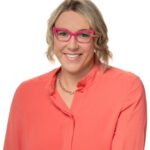
Mammograms are an essential tool in the early detection of breast cancer. As a crucial part of women’s health, understanding when to start getting mammograms and how often to have them can be life-saving. Let’s explore the ins and outs of mammograms and when you should consider scheduling one.
What is a Mammogram?
A mammogram is a specialized X-ray of the breast tissue used to detect abnormalities or changes that may indicate breast cancer. This breast imaging technique is highly effective in identifying potential issues before they become visible or palpable during a physical exam.
When Should You Start Getting Mammograms?
The general recommendation for women at average risk of breast cancer is to begin annual mammograms at age 40. However, it’s essential to consult with your healthcare provider about your individual needs, as some factors may influence when you should start screening:
- Family history: If you have a first-degree relative (mother, sister, or daughter) who had breast cancer, you might need to start screenings earlier.
- Genetic factors: Certain genetic mutations, such as BRCA1 or BRCA2, can increase your risk of breast cancer at a younger age and screening should also start earlier
- Personal history: If you’ve had breast cancer before, you may need more frequent screenings.
- Breast density: Dense breast tissue can make it harder to detect abnormalities on a mammogram, potentially requiring additional imaging.
At Tucson Breast Health Specialists, we offer comprehensive breast imaging services tailored to your individual needs.
Are Mammograms Painful?
Many women worry about discomfort during a mammogram. While the procedure can cause some temporary pressure and discomfort, it’s generally not painful. The breast is compressed between two plates for a few seconds to get a clear image. Any discomfort is usually brief and outweighed by the potential benefits of early detection.
What to Expect During a Mammogram
When you arrive for your mammogram in Tucson, you can expect a professional and caring environment. Here’s what typically happens:
- You’ll be asked to undress from the waist up and wear a gown.
- A technologist will position your breast on the mammogram machine.
- The breast will be compressed for a few seconds while images are taken.
- The process is repeated for the other breast and from different angles.
- The entire procedure usually takes about 20 minutes.
Risk Factors and Frequent Screenings
Some women may need more frequent breast cancer screenings due to various risk factors. These can include:
- A personal history of breast cancer
- A strong family history of breast or ovarian cancer
- Genetic mutations that increase cancer risk
- Previous chest radiation therapy
- Certain benign breast conditions
If you have any of these risk factors, it’s crucial to discuss your screening schedule with a breast health specialist. Dr. Michele Ley, our experienced breast surgical oncologist, can provide personalized recommendations based on your individual risk profile.
The Importance of Regular Mammograms
Regular mammograms are vital for detecting breast cancer early when it’s most treatable. Early detection can lead to more treatment options and better outcomes. Remember, even if you don’t have any symptoms or risk factors, routine mammograms are still important for maintaining breast health.
Take Action for Your Breast Health
Don’t wait to prioritize your breast health. If you’re due for a mammogram or have concerns about your breast health, take the first step today. At Tucson Breast Health Specialists, we’re committed to providing compassionate, personalized care to every patient. We also offer high-risk evaluations and have resources available on our website here.
If you have abnormal imaging from your mammogram, schedule an appointment with us by contacting us online. Our team of experts, led by Dr. Michele Ley, is here to guide you through every step of your breast health journey. Don’t delay – early detection saves lives!
Michele Ley, MD, FACS
Dr. Michele Ley, a breast surgical oncologist in Tucson since 2006, combines compassionate care with cutting-edge techniques to provide personalized treatment plans for breast cancer and high-risk patients. With a medical degree from St. Louis University, residency at the University of Arizona, and fellowship at UC San Francisco, Dr. Ley is board-certified in General Surgery and a member of the American Society of Breast Surgeons. Her experience as a medical director for breast programs and her own journey as a breast cancer survivor at age 44 uniquely position her to offer empathetic and expert care to her patients.






